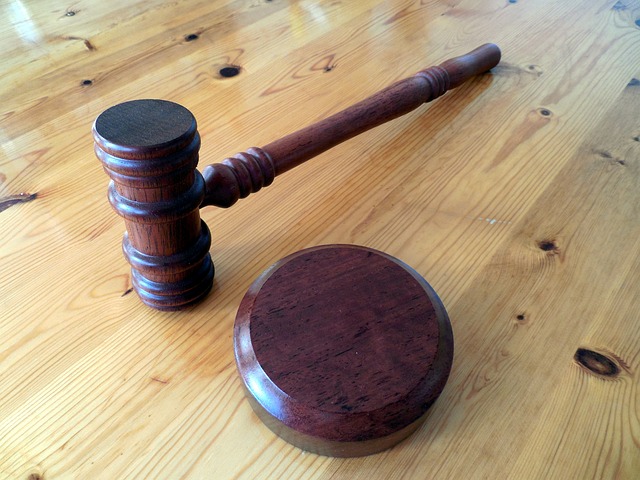Administrative Law Judges (ALJs) arbitrate complex cases, but their decisions can be appealed, carrying significant weight. Appeals are vital for ensuring fairness and accountability in administrative proceedings, impacting labor disputes, environmental concerns, and white-collar defense. Litigants can challenge ALJ rulings based on errors in law interpretation, procedural mistakes, or evidence misinterpretation. The appeals process involves filing a notice of appeal within 30 days, exchanging legal briefs, and potentially oral arguments. Understanding the judge's role and review standards is crucial for success, with effective strategies including highlighting inconsistencies and offering alternative interpretations.
Discover the intricacies of litigation with our comprehensive guide on appealing Administrative Law Judge (ALJ) decisions. This article demystifies the process, offering insights into administrative law’s core components. We explore common litigation types, highlighting the role and jurisdiction of ALJs. Understanding when and how to appeal is crucial; we detail grounds for appeals and provide a step-by-step guide through the appeals process. Learn effective strategies to navigate these legal waters successfully.
- Understanding Administrative Law Judge Decisions: Their Role and Jurisdiction
- Common Types of Litigation: An Overview
- When Appeals Arise: Grounds for Appealing ALJ Decisions
- The Appeals Process: Steps and Timelines
- Effective Strategies for Litigants in Administrative Law Appeals
Understanding Administrative Law Judge Decisions: Their Role and Jurisdiction

Administrative Law Judges (ALJs) play a crucial role in the legal system, acting as impartial arbitrators in various administrative proceedings. Their decisions, which often involve complex legal and factual issues, carry significant weight. ALJs have the jurisdiction to hear cases related to regulatory agencies, ensuring compliance with laws and regulations. This includes matters such as labor disputes, environmental concerns, and white collar defense, where their expertise is invaluable.
When an individual or organization disagrees with an ALJ’s decision, they may have the right to appeal. Appealing Administrative Law Judge Decisions can be a complex process, requiring a thorough understanding of both the law and the specific circumstances of the case. The outcome of these appeals can have far-reaching implications, impacting not only the immediate parties involved but also setting precedents for similar cases within the philanthropic and political communities. An unprecedented track record of successful appeals could indicate a need for further scrutiny and reform in administrative proceedings.
Common Types of Litigation: An Overview

Litigation is a fundamental aspect of legal systems worldwide, encompassing various types that address diverse issues. Common types include civil litigation, where parties resolve disputes over contracts, property, or personal injuries. Criminal litigation, on the other hand, involves allegations of criminal conduct, with the state prosecuting individuals for violations of the law.
Within these broad categories, specialized forms like administrative law suits play a crucial role. These cases involve disputes between individuals and government agencies, including appeals against decisions made by administrative law judges. Given the implications of such decisions on matters ranging from employment to environmental regulation, understanding how to avoid indictment or navigate white collar and economic crimes is essential for both litigants and legal professionals. Moreover, given the unique nature of these cases, they often require a nuanced approach that considers the interests of philanthropic and political communities, ensuring equitable outcomes while upholding the rule of law.
When Appeals Arise: Grounds for Appealing ALJ Decisions

When disputes arise following an Administrative Law Judge (ALJ) decision, understanding the grounds for appealing is paramount. Appeals are a crucial step in the process, allowing parties to challenge decisions they believe are unjust or legally unsound. Common reasons for appealing ALJ rulings include errors in law interpretation, procedural mistakes, or a misinterpretation of factual evidence.
The right to appeal is typically reserved for instances where there was a significant procedural irregularity during the hearing or if new evidence emerges that could substantially alter the outcome. These grounds are essential, as they ensure fairness and accountability within the legal system, catering not only to individual claimants but also to the broader philanthropic and political communities by upholding justice throughout all stages of the investigative and enforcement process.
The Appeals Process: Steps and Timelines

The appeals process is a critical step for individuals seeking to challenge administrative law judge decisions, providing an opportunity to have their case reviewed at a higher level. It typically involves several key steps and timelines that must be rigorously followed. First, a party must file a notice of appeal within a specified period, usually within 30 days of the administrative decision. This initiates the process with the appropriate appellate court.
Following the filing, both parties will exchange legal briefs, presenting their arguments and evidence to support their positions. The appellate court reviews these submissions and may choose to hold oral arguments or decide solely on the written records. Throughout this stage, a general criminal defense strategy might include avoiding indictment by highlighting procedural errors or questioning the validity of evidence presented during the original hearing. An unprecedented track record of successful appeals can underscore the credibility and expertise of legal counsel involved.
Effective Strategies for Litigants in Administrative Law Appeals

When navigating Appealing Administrative Law Judge Decisions, litigants can employ several effective strategies to enhance their chances of success. One key approach is to thoroughly review the initial decision, identifying any errors or omissions that may have influenced the outcome. This meticulous process involves delving into the underlying facts and legal framework to construct a compelling argument for reversal.
Additionally, understanding the role of the administrative law judge and the standards of review applicable to their decisions is paramount. Litigants should familiarize themselves with the scope of the judge’s discretion and any deference owed to their findings. By presenting well-researched and logically structured appeals, whether for corporate or individual clients, one can effectively engage with the appellate body and advocate for a more just outcome. This may include highlighting inconsistencies, proposing alternative interpretations, and drawing support from relevant case law and legislative provisions. Such strategies, tailored to the specific needs of philanthropic and political communities as well as diverse client profiles, foster robust appeals that aim for fairness and accuracy in administrative law matters.
Understanding administrative law judge decisions is crucial for navigating litigation types. Whether through common types of litigation or appeals processes, knowing your rights and grounds for appeal is essential. By employing effective strategies, litigants can ensure their voices are heard, even in complex administrative legal scenarios. Remember that, in terms of appealing Administrative Law Judge decisions, staying informed and proactive is key to achieving a favorable outcome.






